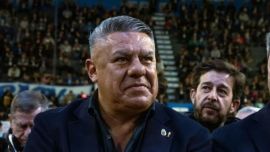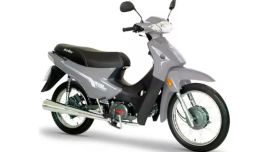The Mercosur regional trade bloc opens a two-day summit Monday with a longstanding deal with the European Union dominating the agenda, but few expect leaders to reach consensus on how to fulfil EU demands on environmental protections.
The EU and the Mercosur countries – Argentina, Brazil, Paraguay and Uruguay – are trying to finalise a trade deal after reaching an agreement in principle in 2019, following two decades of negotiations.
But ratification by the EU's 27 members has stalled, notably over European concerns about Mercosur countries' environmental protections – particularly in the Amazon rainforest.
The EU has proposed a "side letter" to the agreement, with extra environmental guarantees, rankling South American leaders and slowing down progress to notching a final agreement.
Brussels wants any deal with Mercosur nations to include compliance with various commitments made as part of the 2015 Paris climate accords, which are currently voluntary.
The Mercosur summit, to be held in Puerto Iguazú, Argentina, will bring together Argentine President Alberto Fernández and the presidents of Uruguay, Paraguay and Brazil: Luis Lacalle Pou, Mario Abdo Benítez and Luiz Inácio Lula da Silva, who will take up the bloc's pro-tempore presidency until the end of the year.
The bloc represents 62 percent of South America's population and 67 percent of the continent's gross domestic product.
Brazil's Lula has led the criticism of the EU's environmental demands, telling reporters last month that "strategic partners should have a relationship of mutual trust, not mistrust and sanctions."
Deforestation in the Amazon surged under Lula's predecessor, far-right ex-president Jair Bolsonaro, in office from 2019-2022.
Lula pushback
But although veteran leftist Lula has cast himself as the anti-Bolsonaro on environmental policy, he told European Commission head Ursula von der Leyen in June that he had concerns over the additional environmental guarantees.
Lula accused EU lawmakers of trying to legislate "outside their territory" with measures that "change the balance of the agreement."
"It is not possible to have a strategic partnership and have an additional letter threatening a strategic partner," said the Brazilian leader at a recent event in Paris, before an audience that included French President Emmanuel Macron and German Chancellor Olaf Scholz.
The EU's top diplomat, Josep Borrell, acknowledged recently that the environmental proposals have not been well-received by the South American countries and said that Europe is waiting for a concrete response to their requests.
Despite Brazil's criticisms, leaders there still hope to reach a deal, though it is assumed that there will not be enough time to bring talks to a conclusion at Puerto Iguazú.
Latin America's largest economy wants to reach a "well-balanced" result "for both parties," Mauricio Carvalho, secretary for economic and financial affairs at the Foreign Affairs Ministry told AFP.
"We are very close to presenting our assessments to our Mercosur partners," said Mauricio Carvalho
For Bruno Binetti, an expert on international affairs at the Inter-American Dialogue think tank in Washington, "the most" that can come out of the summit is "a specific agenda before the EU," with "demands."
"But I don't think we are at that stage," he told AFP.
Uruguayan dissent
Mercosur, founded in 1991, is far from unified, with Uruguay's dissatisfaction with the bloc’s restrictive trade rules growing.
President Luis Lacalle Pou’s centre-right government wants to seal a free-trade agreement with China and has asked to join the 11-nation Comprehensive and Progressive Agreement for Trans-Pacific Partnership, steps its partners must approve.
Foreign Minister Francisco Bustillo said this month that Uruguay’s status in Mercosur needed to be changed, declaring "there is no interest on the part of Brazil, Argentina or Paraguay in deepening and advancing the integration scheme."
The Mercosur deal is also expected to be on the agenda at the upcoming summit between the European Union and the Community of Latin American and Caribbean States (CELAC), scheduled for July 17 and 18 in Brussels. It will be the first high-level EU-CELAC meeting in eight years.
– TIMES/AFP























Comments